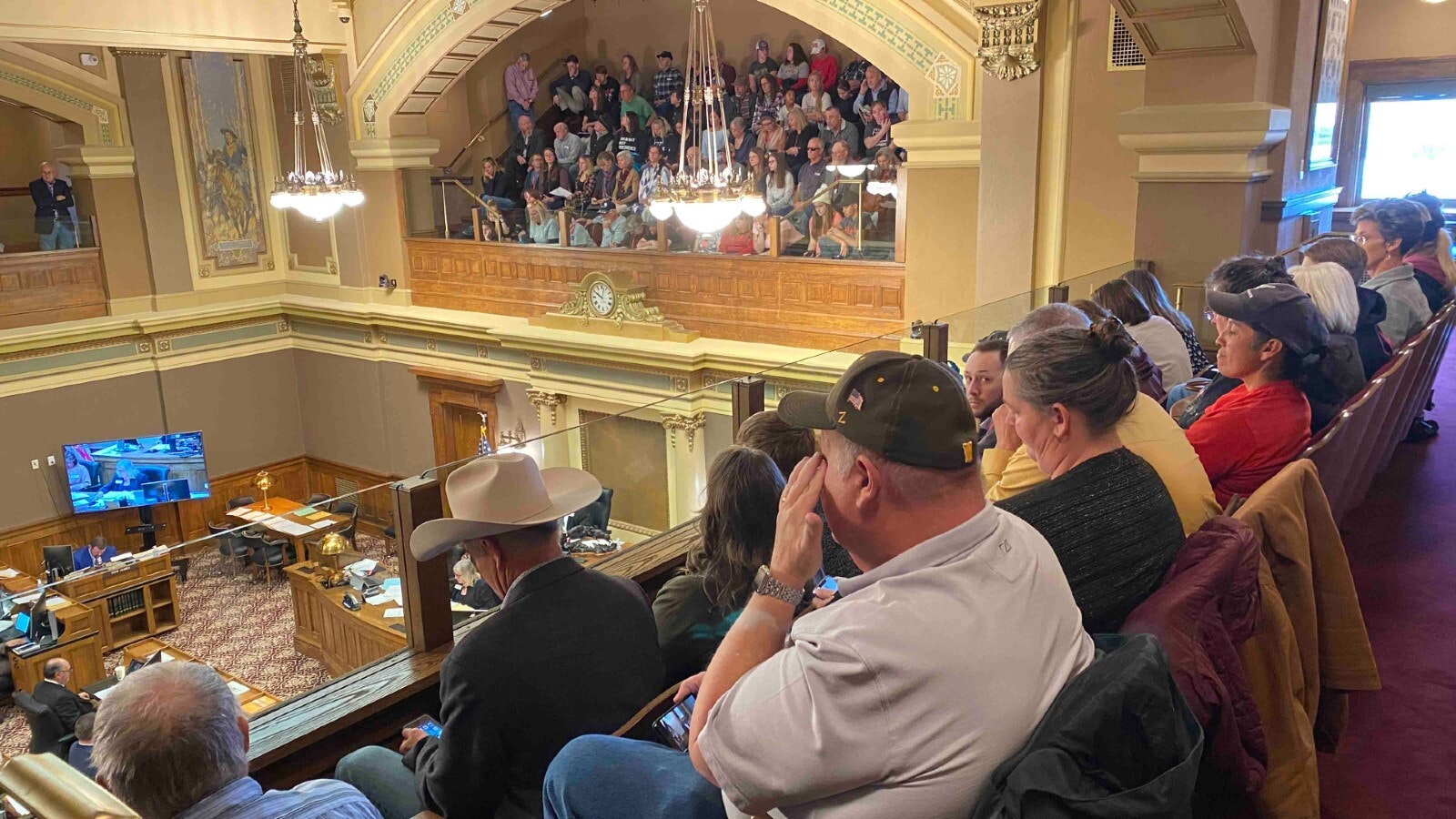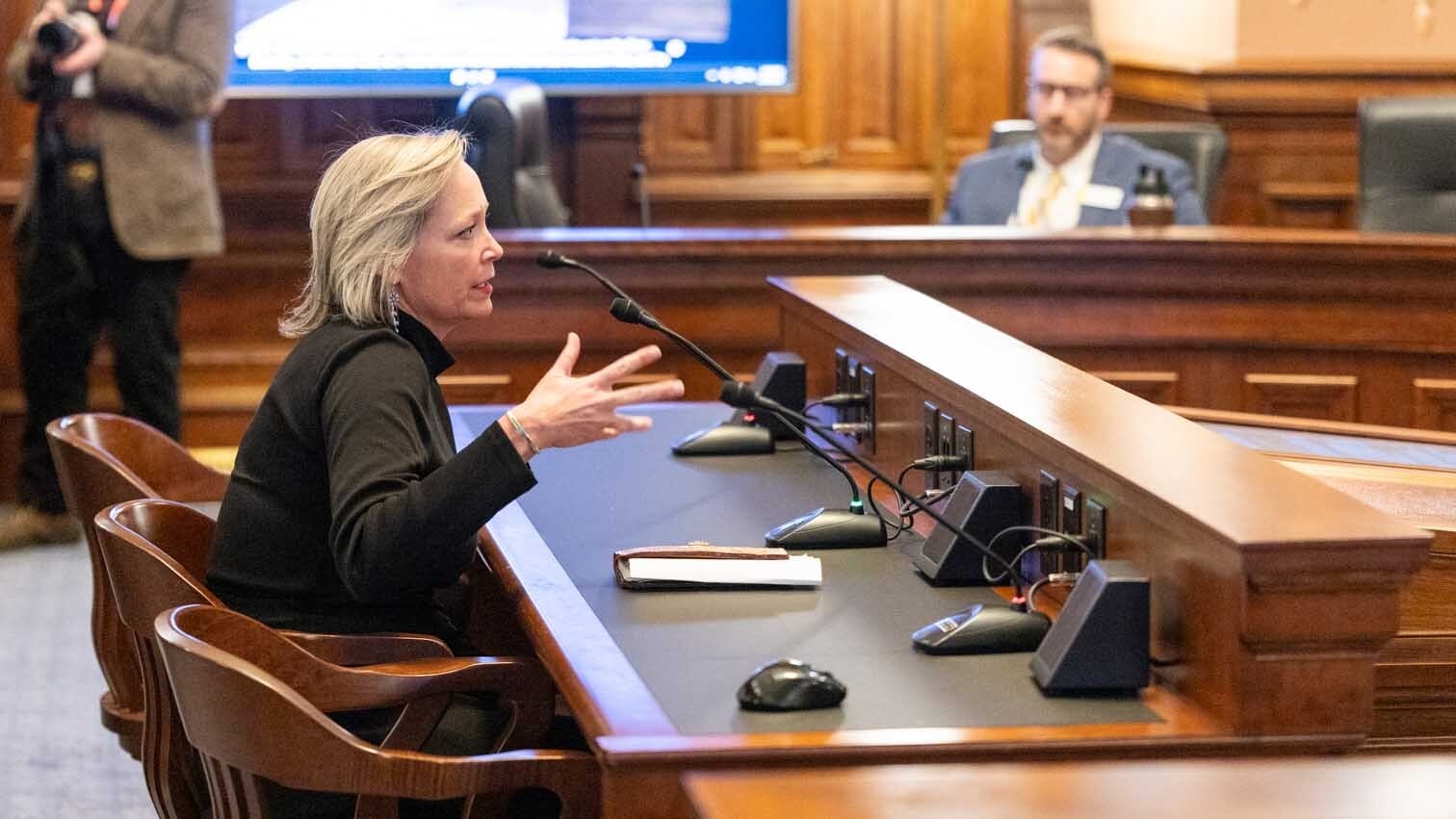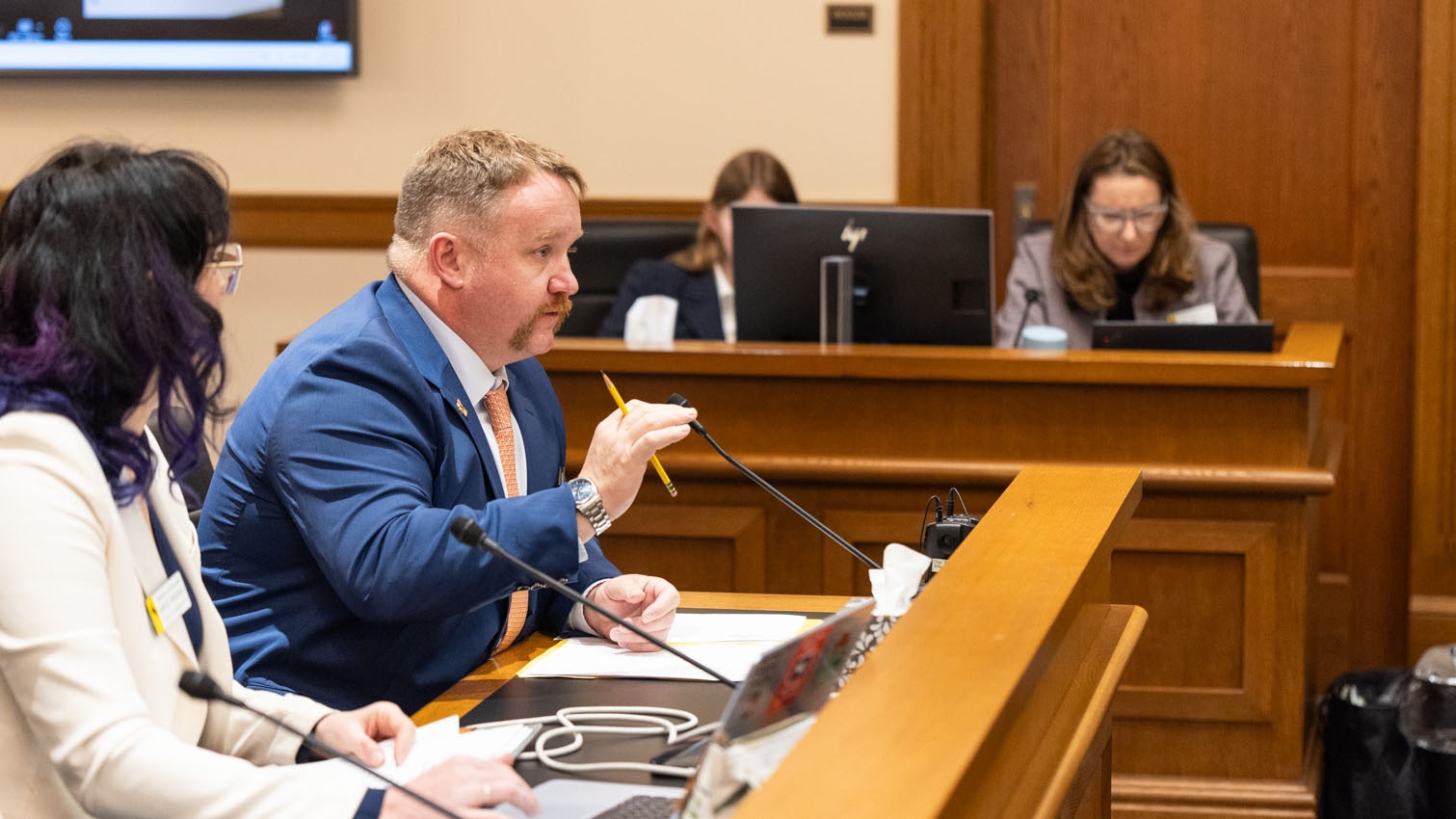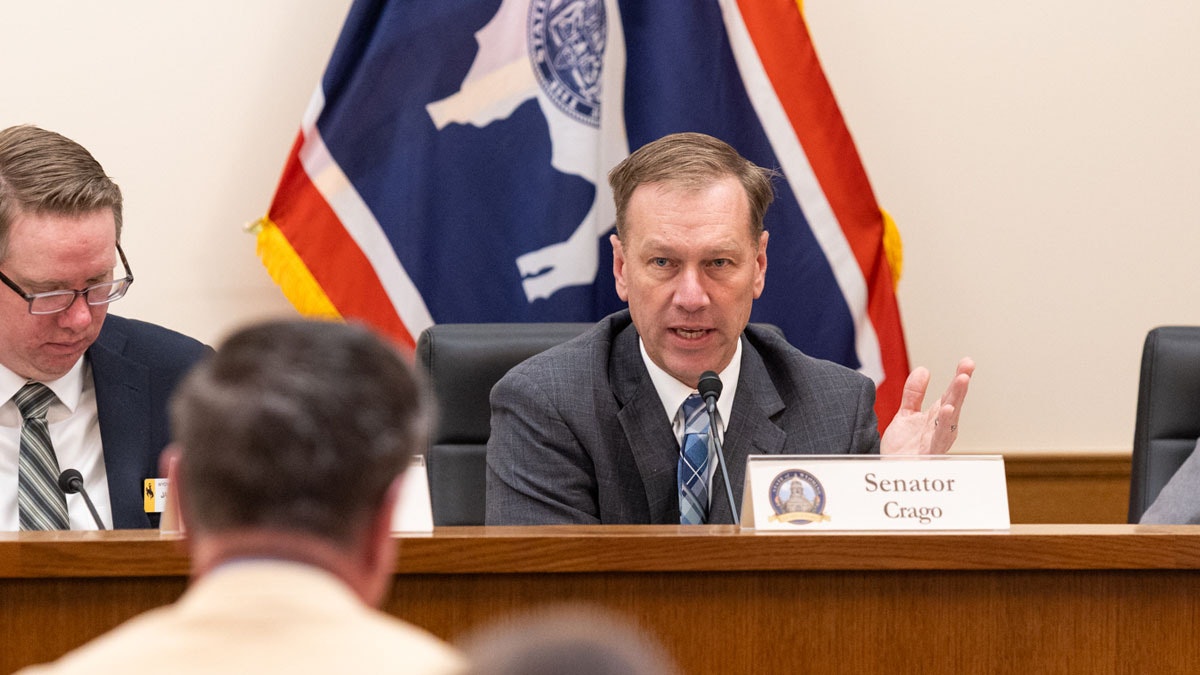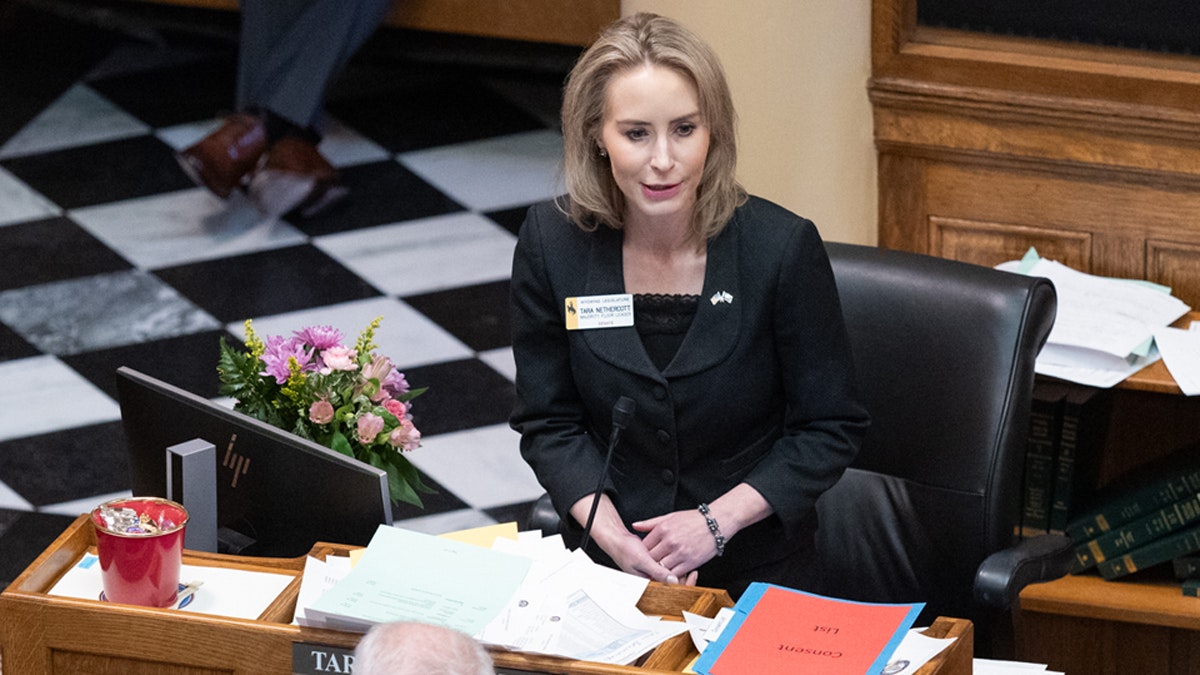The special session of Wyoming’s Legislature dealing with the proposed federal coronavirus mandate will proceed, but without special rules drafted to speed up the process, lawmakers decided Tuesday.
Members of both the House and Senate rejected the special rules, but also voted against adjourning the session, expressing a preference to stay and work out a state response to the vaccine mandate proposed by the administration of President Joe Biden.
“We fought to get out from under British rule because we said ‘You can’t make me do that, I want representation,’” said Rep. Chip Neiman, R-Hulett. “I want to be able to hear all the information. We have a right to our health care choices. Freedom is choices.”
Biden has issued a mandate that all health care workers, all federal employees and all workers for companies that employ 100 or more either get the coronavirus vaccine or be tested weekly for the illness.
The federal rules needed to put the mandate in place have not yet been issued.
The session, originally scheduled to run three days, was called to let legislators adopt measures spelling out how the state will respond to the mandate.
Twenty pieces of legislation were filed for consideration during the session and special rules were proposed to speed up the process.
Under the proposed rules, the state House and Senate would have reviewed legislation at the same time and then resolved any differences in bills members of both approved in joint conference committees. Usually, a bill begins in one chamber, is reviewed and sent to the second on approval, where the review begins again.
But the rules were opposed by a number of legislators who said they would improperly limit debate and public input on the bills to be considered.
“The whole deliberative process is gone,” said House Minority Floor Leader Cathy Connolly, D-Laramie. “The steps that are cut out are really, really important. We’re not listening to the people well enough.”
“The problem I have here is we are compressing what would normally take us a couple of weeks into three days,” said. Rep. Lloyd Larsen, R-Lander. “I don’t want to be here, but if I am going to be here, I think we ought to do it right.”
The rules were rejected despite arguments they would allow the Legislature to work more efficiently.
“I think these rules provide us an opportunity to do the people’s work,” said Sen. Larry Hicks, R-Baggs. “These rules, while they are not perfect, afford us the opportunity to have a debate and some limited public participation.”
Votes in both chambers fell short of the two-thirds majority needed to approve the change, with the House voting 37-20 to adopt the special rules and the Senate voting 18-11 to do so.
Legislative leaders had promised lawmakers that if they rejected the special rules, they would offer legislators a chance to adjourn the special session.
Both chambers voted against adjourning the session, the Senate by a vote of 6-23 and the House by 21-35.There was no debate over the motion in the Senate, but House Speaker Eric Barlow, R-Gillette gave representatives a chance to express their opinions on the session.
Several legislators expressed concern because if the mandate takes effect, it could mean a loss of jobs for anyone who chooses not to get a vaccine.
Rep. Chuck Gray, R-Casper, noted that one private employer, Banner Health, has already imposed a vaccine mandate on its employees effective Nov. 1. Several of the bills awaiting review by the Legislature would prohibit private companies from discriminating against those who have not received the vaccine.
Others argued legislators need to protect the rights of the state’s residents by at least reviewing the proposed solutions to the mandate.
“I don’t know what the result’s going to be,” said Rep. Mark Jennings, R-Sheridan. “Let’s look at these bills and look at these people. I don’t know if we strike back at the (federal) overreach or not. I do know we were elected to stand between the federal government and the businesses and people of Wyoming.
Opponents to the session unsuccessfully argued the federal mandate can only be stopped in court, not in the Legislature, and added the session’s schedule of three days would not allow a thorough review of all the issues.
“We have to figure out a way to do this and do it right and I would have to respectfully submit we can’t do it in two days,” said Rep. Bob Nicholas, R-Cheyenne. “Let’s do this right with the right data and the right information.”
Without the special rules, bills introduced for consideration will be reviewed by one chamber of the Legislature and, if approved, sent to the other chamber for review. Any differences between the two chambers will be settled in a joint conference committee.
Committees began their reviews of bills on Tuesday afternoon and both chambers were scheduled to return to the floor for debate on Wednesday.

